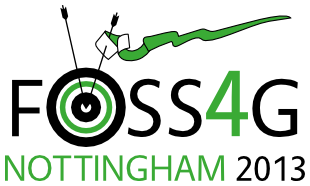Presentation
QGIS As A Platform
Vincent Picavet (Oslandia)
12:30 on Thursday 19th September (in Session 1, starting at noon, Auditorium)
Show in Timetable
Quantum GIS as a platform At the age of web and mobile GIS application, it could be considered a strange idea to focus on desktop GIS. But still, desktop software have a future and are still really pertinent when it comes to advanced analysis or visualization features, where web applications are currently limited. Quantum GIS (QGIS) is a user friendly Open Source desktop Geographic Information System (GIS) part of the Open Source Geospatial Foundation (OSGeo). It supports numerous vector, raster, and database formats and functionalities. QGIS has evolved a lot, and is gaining more and more attention from the geospatial comunity. From a simple PostGIS data viewer, it became a full-featured desktop GIS, with very little lacking compared to the proprietary industry leaders. With the major 2.0 release, QGIS mutated from a desktop GIS to a GIS platform. First of all, the opensource side of this software makes it ease collaboration and innovation. The QGIS infrastructure is open, and bug reports, advices, feature requests and patches can be sent seamlessly. The community shares ideas, code, documentation and more. On the technical side, there are a lot of aspects that make QGIS a platform more than a simple software : it has an API, it is a GIS connector to many other components, it is extendable, it is open, it propose a rapid development model, and offers Python bindings. Sextante, the new QGIS geoprocessing framework, allows QGIS to integrate even more external modules and use them seamlessly, or add your own geoprocessing algorithms. This presentation shows all the ways you can use the QGIS platform to build tools : * Customize the interface * Create custom forms * Create actions * Create scripts * Use sextante * Build Python plugins * Interact with the web QGIS as an application platform is a powerful tool, and is continuously improving in that direction. We will also see the next coming steps in future version which will allow for greater interactions with tools and leverage new applications.
